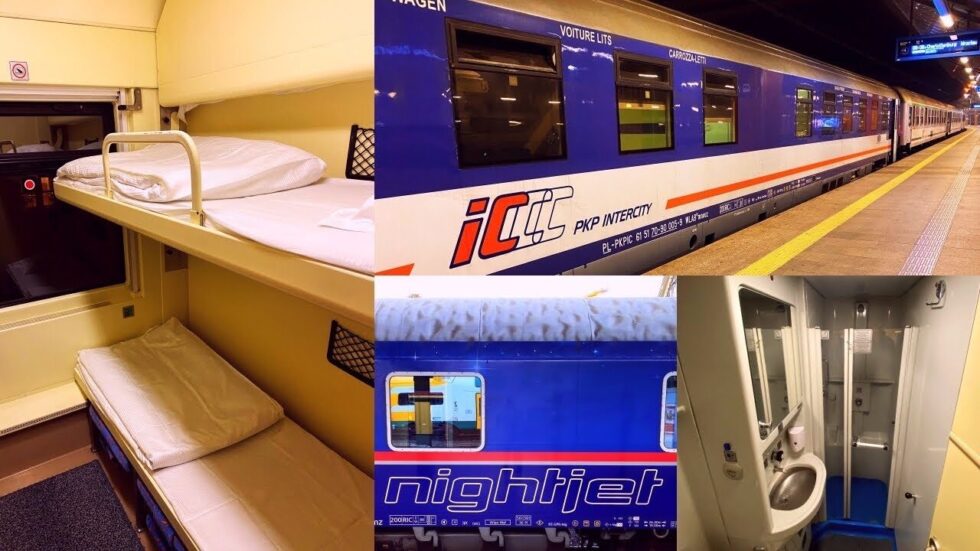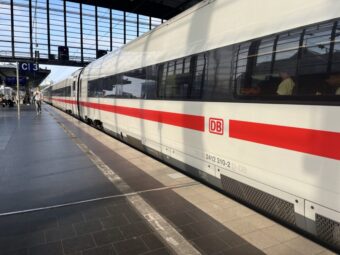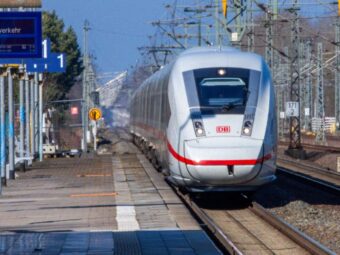Berlin–Poland rail links expand: new night trains to Ukraine border announced

Berlin–Poland rail connections are entering a new era as Deutsche Bahn (DB) and PKP Intercity unveil an ambitious expansion of cross-border services. Beginning in December 2025, passengers will gain access to new night train routes stretching from Berlin deep into eastern Poland, reaching cities such as Przemyśl near the Ukrainian border and Chełm via Łódź and Warsaw. The initiative is part of a broader European push to strengthen sustainable transport and provide alternatives to air travel. With demand for German-Polish travel sharply increasing in recent years, both companies have confirmed that the total number of direct daily connections will grow from 11 to 17, marking one of the most significant upgrades in the region’s railway network in decades, reports G.business citing rbb24.
New night trains to eastern Poland
- Berlin – Wrocław – Kraków – Przemyśl (at the Polish–Ukrainian border)
- Berlin – Łódź – Warsaw – Chełm
These connections will for the first time provide two direct overnight links from Germany to Poland’s eastern border with Ukraine. Operations are split: DB will provide traction and staff on the German side, while PKP Intercity will manage carriages and service in Poland
Daytime expansion from December 14
- Leipzig – Wrocław – Kraków: two trains daily in each direction.
Travel time from Munich, Nuremberg, and Frankfurt to southern Poland will be cut by roughly two hours - Berlin – Warsaw: an additional daily EuroCity connection, bringing the total to seven train pairs operating every two hours
- Total connections: 17 direct daily services between Germany and Poland, up from the current 11
Passenger and expert reactions
- Rail enthusiasts highlight the importance of Łódź, which regains long-awaited international connections through the new Berlin–Łódź–Chełm night train.
- Travel blog weLoveUrlaub describes the Leipzig–Wrocław–Kraków service as a “game-changer for weekend trips,” making Kraków a realistic destination for overnight getaways from southern Germany
Overview of new routes
| Route | Train type | Frequency | Key benefit |
|---|---|---|---|
| Berlin – Wrocław – Kraków – Przemyśl | Night Eurocity | Daily | First direct night link to Ukrainian border |
| Berlin – Łódź – Warsaw – Chełm | Night Eurocity | Daily | Reintroduces international trains via Łódź |
| Leipzig – Wrocław – Kraków | Daytime IC | 2 trains each way | Faster southern Germany to Poland access |
| Berlin – Warsaw | Daytime EC | 7 train pairs | Two-hourly frequency on busy corridor |
Why this expansion matters
- Night services: direct access from Berlin to Poland’s eastern border regions strengthens both mobility and resilience.
- Faster travel: reduced journey times from southern Germany to Kraków and beyond.
- Joint operation: efficient collaboration between DB (traction, staff) and PKP Intercity (rolling stock, service).
- Traveler appeal: more flexible weekend and business travel options, especially for Polish diaspora communities.
- European rail revival: part of a broader EU trend boosting cross-border night trains as a greener alternative to short-haul flights.
The upcoming expansion of German–Polish rail services is more than just a timetable adjustment — it is a strategic step toward deeper regional connectivity. By adding new night trains to Przemyśl and Chełm, Deutsche Bahn and PKP Intercity are extending Europe’s railway map to the very edge of the Ukrainian border, underlining the importance of reliable links in times of shifting geopolitical realities. For travelers, the benefits are tangible: shorter journey times, more frequent departures, and direct access to destinations that were previously difficult to reach without multiple transfers. The cooperation also reflects a growing trend across Europe, where night trains are being revived as a greener, more comfortable alternative to flying. With 17 direct connections now planned, Germany and Poland are setting a new standard for sustainable cross-border mobility, showing how railways can adapt to both passenger demand and international challenges.
Stay connected for news that works — timely, factual, and free from opinion — and insights that matter now: Qatar’s THAAD Gamble: Can BAE’s 1,000th Seeker Redefine Gulf Security

